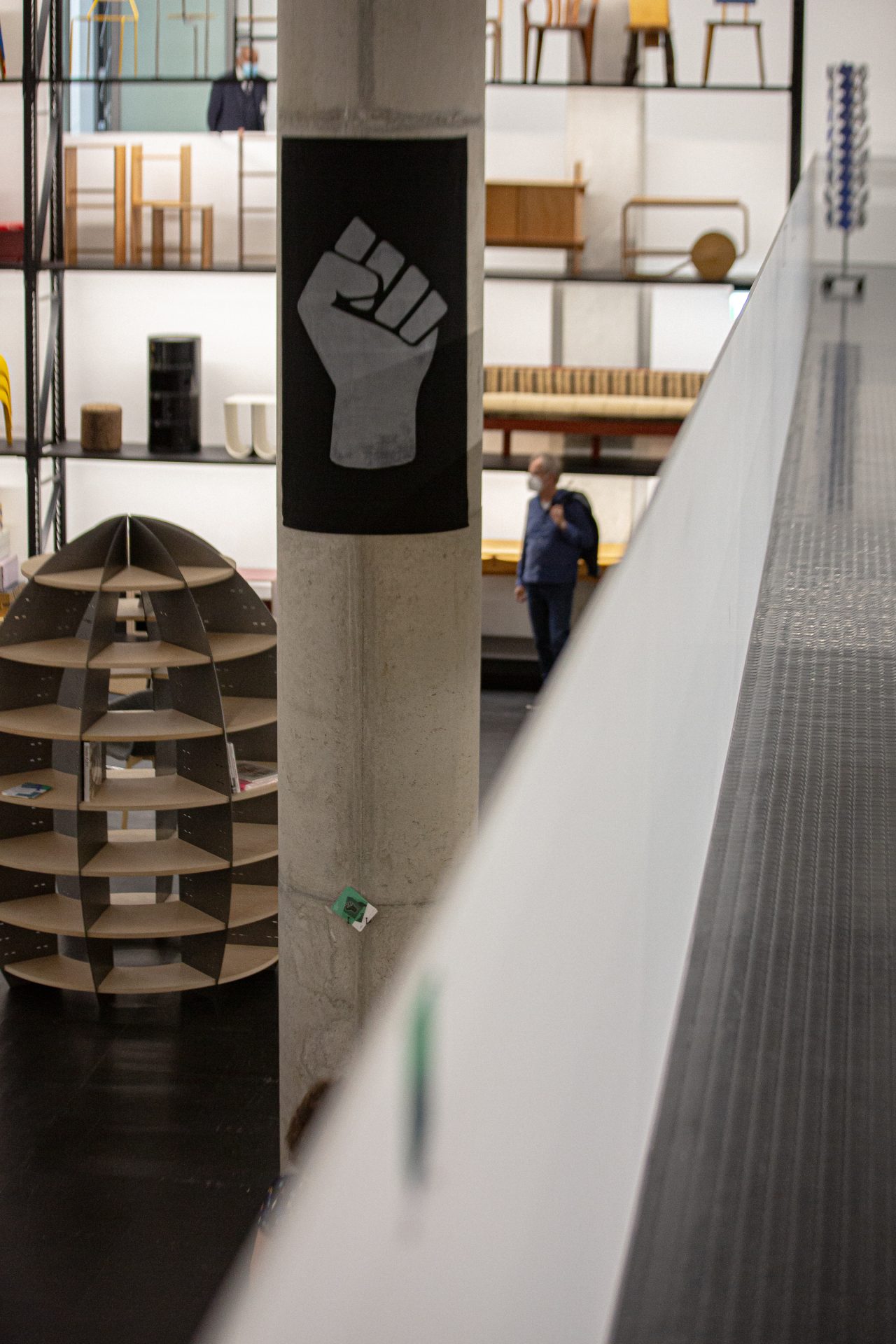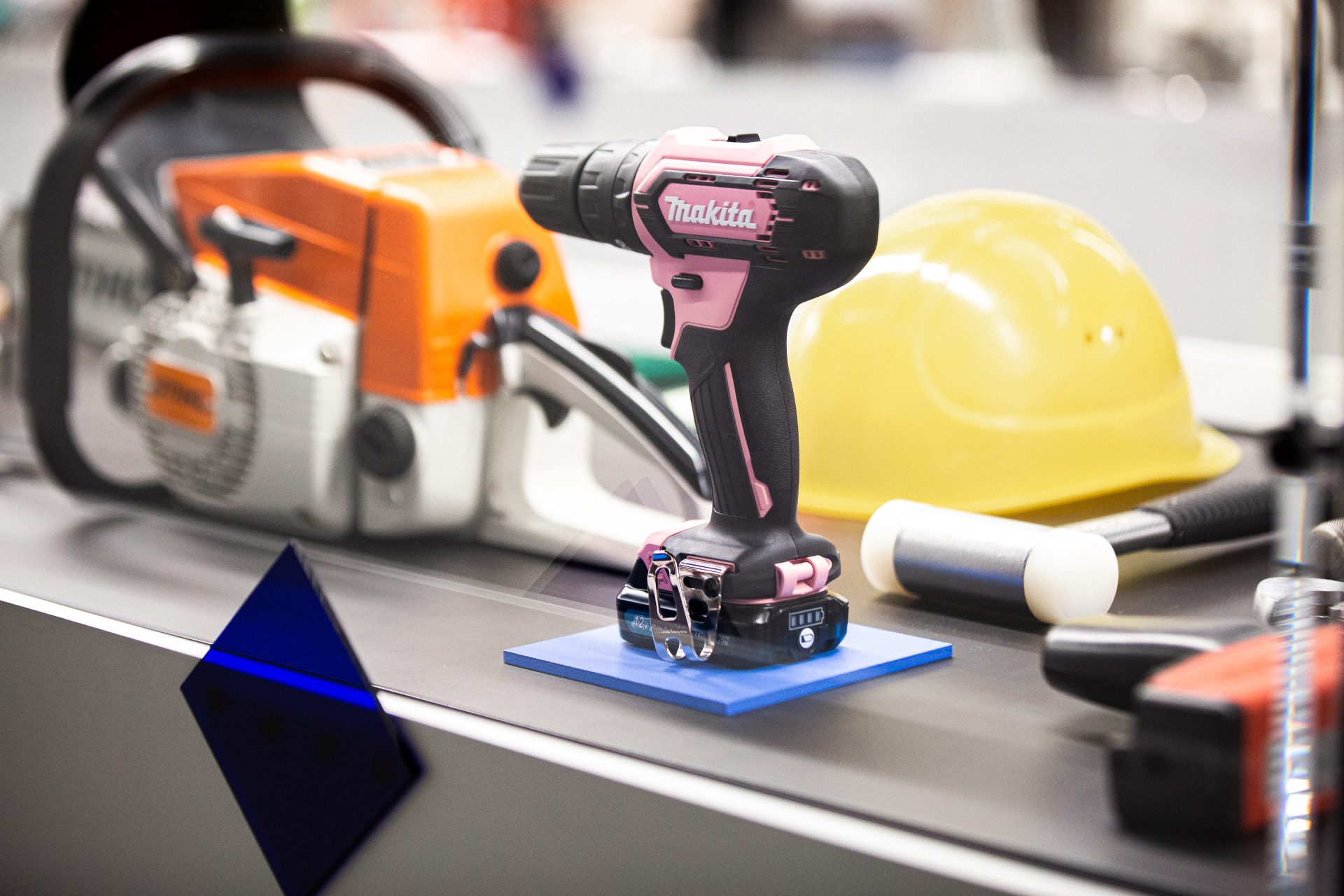Facets of Democratic Design
About the Intervention
In their intervention, 11 Master’s students explore the democratic potential of design and use selected exhibits to address the facets of what democratic means.
In addition, the students add objects to the collection whose democratic aspects were in their opinion previously missing from the collection and are especially relevant for a younger generation. Moreover, this preoccupation with design and democracy takes place not only at the intellectual level as it has also left physical traces behind: At a live event on July 26: anyone who wanted to permanently demonstrate their understanding of democratic design was able to have the outline of one of the selected objects tattooed on their body in a professional tattoo studio in Munich. The results are documented in the exhibition in photographs and a film.
The students of the Advanced Design Master’s program at the University of Munich have for over a year been applying themselves intensively to the democratic potential of design. They understand democracy as a value system that has a major influence on how we all live together: Design can visualize future visions and innovative solutions, take a clear stance, and enhance both the shape of our society and our lives together. Design is capable of kicking off transformation processes and social change. The immense innovative potential of design is also reflected in designed objects: For example, the exhibits embody democratic values such as equality, accessibility, participation, and tolerance, but always also the restrictions of the respective time. Thanks to their intensive preoccupation with the objects the students reflect on the extent to which design supports, promotes, shapes but also prevents democratic structures.
The X-D-E-P-O-T provides new insights into and impressions of the Die Neue Sammlung’s collection. A diverse selection of objects from various epochs, different origins and design categories is shown alongside one another with the intention of enabling new perspectives. The interventions of the students (whose seminar was supervised by Prof. Markus Frenzl) highlights designs that could be interpreted differently given a broader understanding of democracy. This takes into consideration such aspects as background information on the design, the context of the item’s realization, its conception or accessibility to individual exhibits.
In addition, the students adopt the role of curator by enriching the exhibition of the X-D-E-P-O-T temporarily with contemporary democratic objects that stand for current societal developments. And so that democratic design really gets beneath the skin and the objects are accessible in the sense of democratic participation they could be taken home as professional tattoos.
The exhibition “Facets of Democratic Design”
was developed by Miriam Glöckler, Magdalena Kern, Amanda Kock, Marie Körner, Alica Kroll, Anja Lietzau, Leila Potocki, Marius Rohne, Liene Sanktjohanser, Clara Schlegelmilch und Rona Stupka.


-
Curated by:
Caroline Fuchs and
Markus Frenzl -
Cooperation partners:
Hochschule München